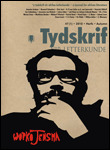Constructing an inclusive speech community from two mutually excluding ones: The third Afrikaans language movement
DOI:
https://doi.org/10.4314/tvl.v47i1.50495Keywords:
language appropriation, language-political restoration and maintenance, linguistic exclusion, speech communityAbstract
The article deals with the aim of leaders in the Afrikaans community to maintain Afrikaans as a language of high-function formal contexts in post-1994 South Africa through the construction of a community which meaningfully includes all its speakers as members, referred to as a “speech community”. Basing the concept “speech community” on Johnson and Milani’s description of such a language as “a complete and society-bearing language” and on Pavlenko and Blackledge’s notion of “a public”, it lists the obstacles which the development of an “inclusive Afrikaans community” need to deal with and discusses five issues which have to be debated in such a developmental process. The article also provides a brief overview of activities which the Afrikaans establishment have organised since 2003 (referring to them as “the third Afrikaans language movement”) to restore the language-political status of Afrikaans, and asks whether the emphasis on constructing an inclusive speech community is a creative way of addressing the problem with which they wish to deal.
Downloads
References
...
Downloads
Published
Issue
Section
License
Copyright (c) 2010 Tydskrif vir Letterkunde

This work is licensed under a Creative Commons Attribution-ShareAlike 4.0 International License.


 https://orcid.org/0000-0001-6465-6584
https://orcid.org/0000-0001-6465-6584


.png)